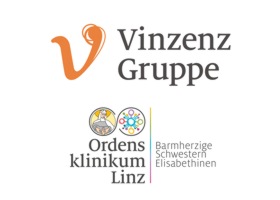Kutschera, Maximilian und Waldhör, Thomas und Gröchenig, Hans Peter und Haas, Thomas und Wenzl, Heimo und Steiner, Pius und Koch, Robert und Feichtenschlager, Thomas und Eckhardt, Gerald und Mayer, Andreas und Kirchgatterer, Andreas und Ludwiczek, Othmar und Platzer, Reingard und Papay, Pavol und Gartner, Johanna und Fuchssteiner, Harry und Peters, Paul-Gerhard und Reicht, Gerhard und Moser, Gabriele und Dejaco, Clemens und Vogelsang, Harald und Primas, Christian und Novacek, Gottfried und Miehsler, Wolfgang
(2021)
Use of complementary and alternative medicine and low quality of life associate with the need for psychological and psychotherapeutic interventions in inflammatory bowel disease.
United European gastroenterology journal, 9 (1).
pp. 72-81.
ISSN 2050-6414
Für diesen Eintrag wurde kein Volltext-Dokument angefügt.
Kurzfassung
INTRODUCTION
Patients with inflammatory bowel disease (IBD) suffer from various symptoms, impairing their quality of life and often affecting psychosocial issues. This may lead to the need for additional psychological care. This study investigated patients' subjective need for integrated psychosomatic support and psychotherapy and indicators for it.
MATERIALS AND METHODS
This is a cross-sectional multicentre study in Austrian IBD patients who were in routine care at 18 IBD outpatient clinics. Patients filled in an anonymous, validated questionnaire (Assessment of the Demand for Additional Psychological Treatment Questionnaire [ADAPT]) assessing the need for psychological care. The ADAPT gives two separate scores: the need for integrated psychosomatic support and for psychotherapy. In addition, health-related quality of life and the use of complementary and alternative medicine as well as clinical and socio-demographic variables were queried. Multivariable regression analysis was performed to estimate the effect of the previously mentioned variables on the need for additional psychological care.
RESULTS
Of 1286 patients, 29.7% expressed a need for additional psychological care, 19.6% expressed a need for integrated psychosomatic support and 20.2% expressed a need for psychotherapy. In the multivariable analysis, the two strongest indicators for the need for both types of psychological care were the use of complementary and alternative medicine (for integrated psychosomatic support: odds ratio = 1.64, 95% confidence interval 1.13-2.39, p = 0.010; for psychotherapy: odds ratio = 1.74, 95% confidence interval 1.20-2.53, p = 0.004), and a low health-related quality of life score (for integrated psychosomatic support: odds ratio = 0.95, 95% confidence interval 0.94-0.96, p < 0.001; for psychotherapy: odds ratio = 0.96, 95% confidence interval 0.94-0.97, p < 0.001).
DISCUSSION
About 30% of the Austrian IBD patients expressed a need for integrated psychosomatic support and/or psychotherapy. The most important indicators for this need were the use of complementary and alternative medicine and low quality of life.
Aktionen (Anmeldung erforderlich)

- Eintrag anzeigen


 Tools
Tools Tools
Tools